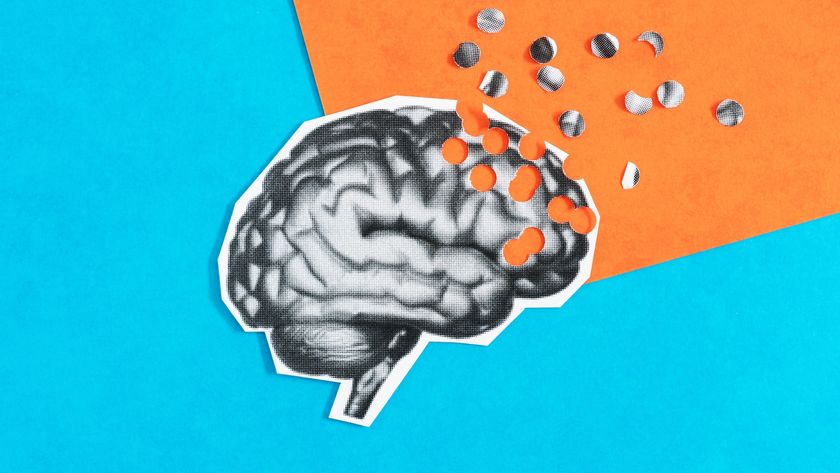Unsteady Heartbeat Could Spell Early Dementia

An irregular heartbeat may be a sign you're on the fast track to dementia, according to a new study.
While thinking and memory problems are common in the elderly, the study of more than 5,000 people over age 65 showed that those with the heart condition atrial fibrillation tend to suffer mental decline earlier than people without the heart condition.
The reason for the link is unclear, and the findings don't mean that everyone with atrial fibrillation will suffer earlier mental decline, said study researcher Evan Thacker, a statistician in the department of epidemiology at the University of Alabama at Birmingham. "One person who has atrial fibrillation may not have any memory or thinking problems at all."
But as a group, people in the study with atrial fibrillation reached the threshold where mental decline is considered to be dementia two years earlier than those without the heart condition, according to the study published today (June 5) in the journal Neurology.
A few points missed means many troubles
In people with atrial fibrillation, misfiring electrical signals cause an atypical heartbeat. The Centers for Disease Control and Prevalence estimated 2.66 million people in the U.S. had atrial fibrillation in 2010. But the CDC expects 12 million people will have it by 2050.
Thacker's study used data from the large Cardiovascular Health Study done in the 1990s. Participants had their heart health measured, and took two types of mental tests each year over the course of about seven years. The researchers excluded participants who had had a stroke or a previous diagnosis of atrial fibrillation, before the study's start.
Sign up for the Live Science daily newsletter now
Get the world’s most fascinating discoveries delivered straight to your inbox.
One test, called the Modified Mini-Mental State Examination (3MSE), measures global thinking abilities on a 100-point scale. The 3MSE tests whether you know where you are and what day it is, your language skills, or if you can copy interlocking shapes from a piece of paper. The other test, called the Digit Symbol Substitution Test (DSST), measures quick-thinking and multitasking.
Researchers found that people who developed atrial fibrillation during the study began doing worse on both mental tests. The results showed that the average score of people ages 80 to 85 fell by 6.4 points on the 3MSE over the study period. But the average score of people with atrial fibrillation declined 10.3 points.
And a 5- or 10-point drop on either test can indicate a noticeable difference in everyday life. "They may notice problems in memory that are more serious than remembering where you put your keys," Thacker said.
"It could be not having a good enough memory to find your way home after shopping," he said. In more serious cases it could mean a person can't put together a meal, or manage finances.
Behind the heart-brain connection
The findings are important, said Dr. Allyson Zazulia, associate professor of neurology at the Washington University School of Medicine in St. Louis, because "both atrial fibrillation and dementia are, of course, huge problems in the elderly."
And the elderly will account for an ever-larger part of the U.S. population as baby boomers age. [7 Ways to Prevent Alzheimer’s Disease]
Thacker's study couldn't explain how atrial fibrillation might be related to memory problems. And at present, doctors don't even know if treating atrial fibrillation would help or hurt a person's risk for dementia.
But doctors who treat both conditions said the connection makes sense. For one, dementia and atrial fibrillation share the same risk factors.
A person with high blood pressure and diabetes is automatically considered to be at a higher risk of both atrial fibrillation and dementia, said Dr. Shadi Kalantarian, research fellow of the Cardiac Arrhythmia Service at Massachusetts General Hospital. Thacker's finding could have been called a coincidence if he hadn't accounted for those risk factors, but he did, and the connection between atrial fibrillation and dementia remained.
One cause for the lower test scores could be the fact that an irregular heartbeat can lead to chronic blood flow problems, possibly lowering the amount of oxygen and nutrients available to the brain.
So-called "silent" strokes could be another explanation. "People with atrial fibrillation are more prone to forming blood clots in their atrium," Kalantarian said. A large blood clot that lodges in the brain will cause a noticeable stroke and, of course, noticeable brain damage. However, a person could suffer a series of mini 'silent' strokes and not even know it, Kalantarian said.
"The 'silent' means that you don't have the sudden signs of stroke, but they are clearly not truly silent, because they cause an insidious development of cognitive and gait impairment," said Zazulia, who also thought silent strokes could be behind the connection.
Incorporating brain imaging into future large, long-term studies could show whether silent strokes are to blame for earlier signs of dementia.
"If medical researchers could find the answer to that question of why this happens, then we could have something useful for patients," Thacker said.
Follow LiveScience @livescience, Facebook & Google+. Original article on LiveScience.com .












